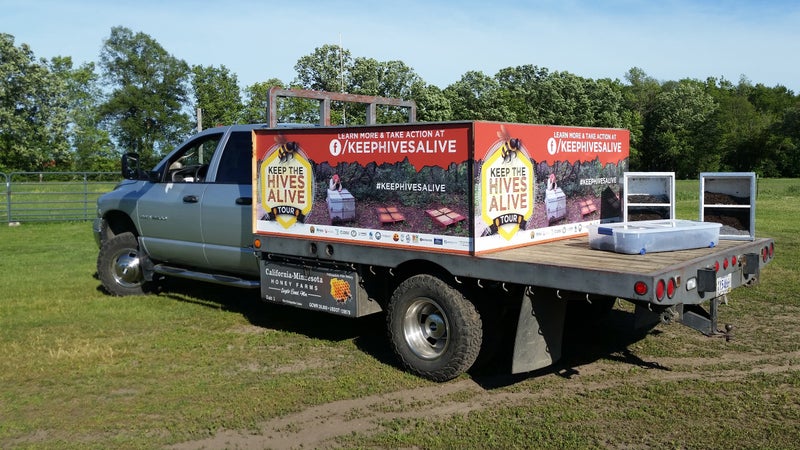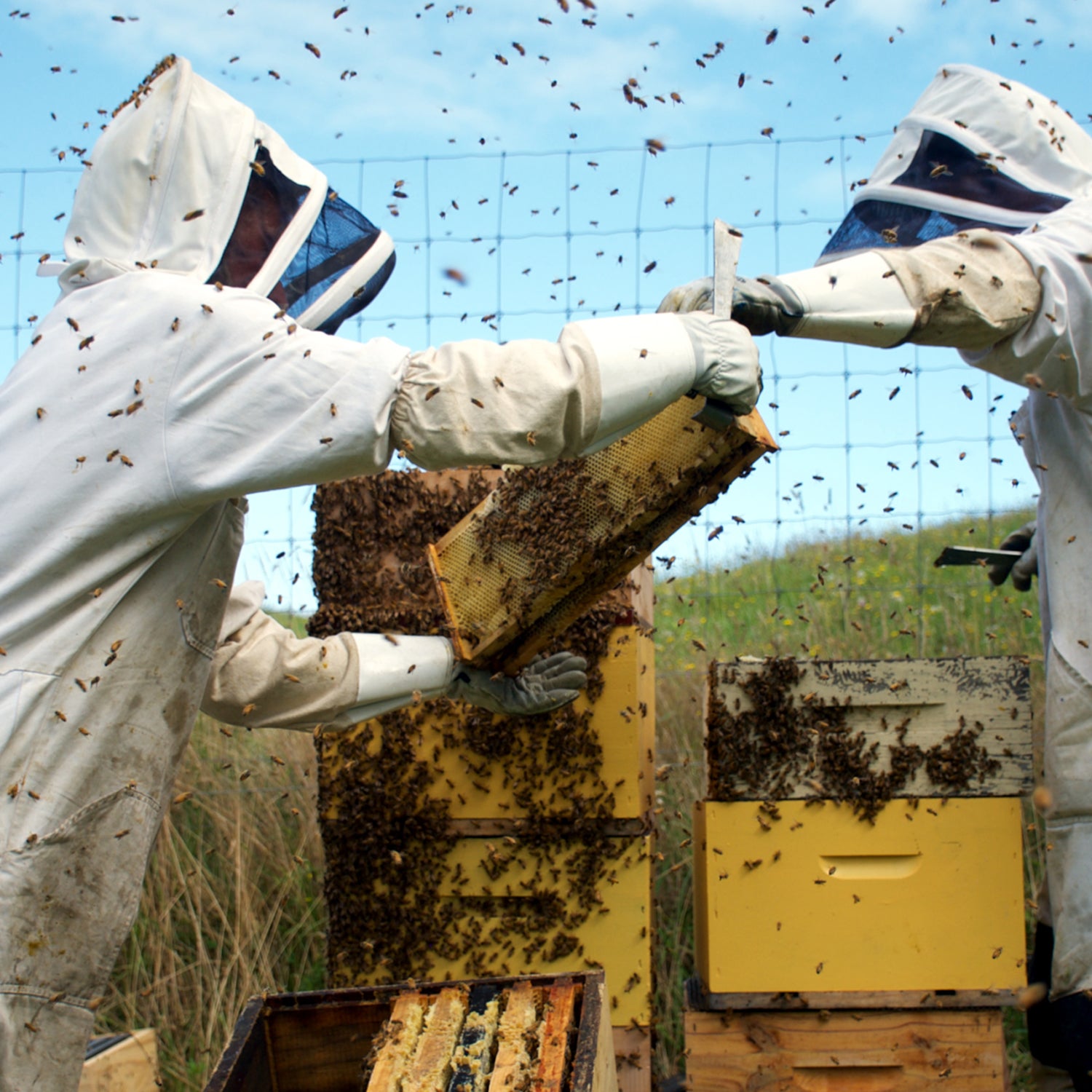When someone pulls into your neighborhood with 2.5 million dead, rotting honeybees in the back of his pickup truck, you tend not to forget the scent.
“They do have a funk to them,” says James Cook, who has been driving 550 pounds of bee carcasses around the country in his Dodge 3500 flatbed since June 12 on the inaugural . The bee bodies are stowed in plastic bins sealed by a bead of silicon. “It’s not an overwhelming smell,” he says, “but you definitely know something’s in there that’s not alive.”
Tiffany Finck-Haynes, the Bee Action Campaign leader at , a D.C.-based advocacy group, has been riding along for part of the tour. “I'm not sure how I would explain their smell,” she says. “They’re definitely decomposing. They kind of smell like dead fish.”
Mostly this is because the bees have been dead for months. Cook and his colleagues at Old Mill Honey Company, a Minnesota-based beekeeping business, collected them from 2,200 hives in hibernation last winter and spring; most of the 2.5 million died of natural causes then got pushed out the door by surviving bees. Knowing the tour was to take place this June, Cook stored the carcasses in four 55-gallon drums. He added kitty litter to absorb moisture and keep the bee corpses at least somewhat recognizable to federal lawmakers whose attention Cook will demand today when he delivers them to Capitol Hill in an act of good ol' fashioned political theater.
If you collected all the bees lost to pesticides in the U.S. each year, you could stack them seven feet deep across a football field.
“It would’ve been great to have fresh-looking bees, and you can still tell that they look like bees, but they’re working their way back into carbon now,” says the 30-year-old Cook. “They’re slowly turning a dark color; they don’t have a lot of luster left in them.”
The 10-day, eight-stop tour, culminating this afternoon in front of Environmental Protection Agency headquarters in Washington, D.C., is intended to show the impact of chemical pesticides on pollinators like honeybees (and, to a lesser extent, birds and butterflies), who are instrumental to the health of the country's natural food crops. By most estimates, 40 percent of America’s honeybees die each year, three quarters of which are attributed to pesticides. And although 2.5 million bees may sound like a lot, Old Mill Honey Company alone lost about 1,100 hives last year, or 36.7 million bees. If you collected all the bees lost to pesticides in the U.S. each year, Cook says, you could stack them seven feet deep across a football field.
Cook and his copilot, Trent Waterman, who is filming a documentary about the tour, planned their first stop at Jonathan Lundgren’s Blue Dasher Farm in South Dakota on June 13. Lundgren in March when he resigned in protest from his research entomologist job at the U.S. Department of Agriculture, which, he said, suppressed research that showed pesticides could be bad for honeybees.
Lundgren opened Blue Dasher three months ago. It has about 30 hives now with a plan for 75. More than 120 people showed up at Lundgren's farm for the tour and panel discussion, some driving two and a half hours to attend. Pesticides of course aren't the only affliction besieging honeybees, which continue to suffer huge casualties from colony collapse disorder. “The root problem is a lack of diversity in our food production system,” Lundgren says.��“We’ve degraded our natural resource base, and the only way we can produce food using the current production methods is with agrichemicals.”

The basis of the Keep the Hives Alive Tour—which also visited Minnesota, Michigan, Pennsylvania, and North Carolina—is not without precedent. Three years ago, Dave Hackenberg, a well-known beekeeper from Pennsylvania, drove 200 empty hives to a meeting with EPA assistant administrator Jim Jones in D.C. Hackenberg made that trip in a ten-wheeler.
Cook doesn’t plan to dump them at the Capitol but instead will compost them when he gets home to Minnesota.��When he looks at their brittle bodies, he sees his future, and it worries him.��
“To be honest, the reason I’m doing this is I’ve only been beekeeping for five years, but I’m trying to become part of the next generation of beekeepers,” Cook says. “And if I don’t speak out about the plight of these bees and what we’re seeing inside of our hives, then who’s going to?”


